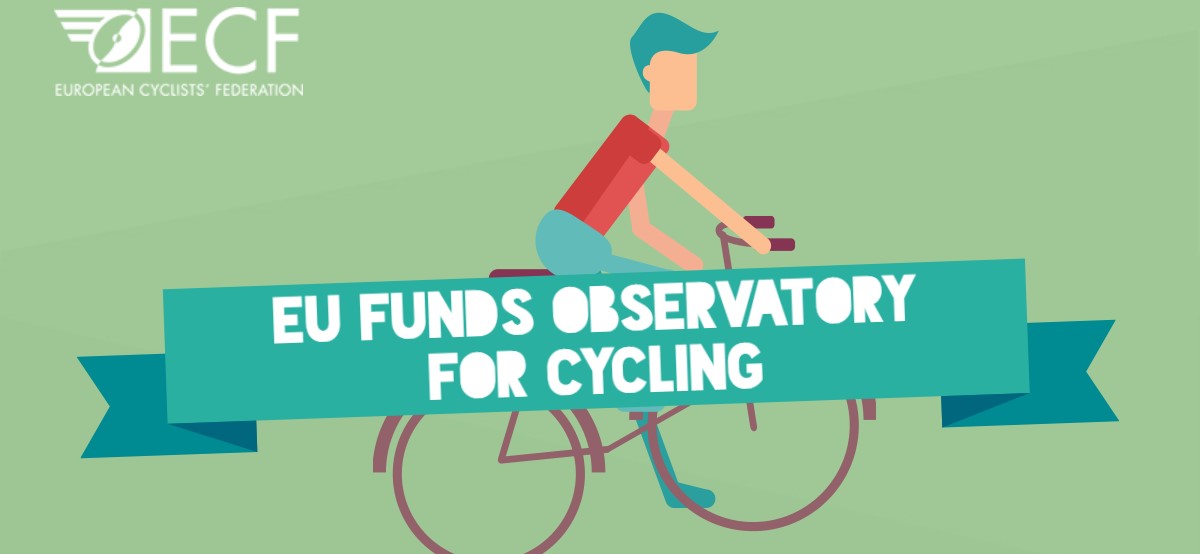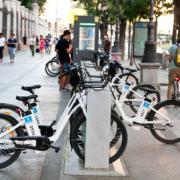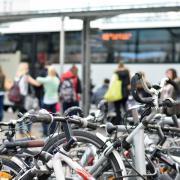
New H2020 Work Programme 2018-2020 released: four opportunities for cycling projects in January 2018
The Horizon 2020 Programme is the biggest EU Research and Innovation programme ever with nearly €80 billion of funding available over 7 years (2014 to 2020). The funding opportunities in this work programme are set out in thematic, multiannual work plans. The European Commission recently published the new Horizon 2020 Work Programme from 2018 to 2020. During this period the European Commission plans to invest 30 BN in H2020 projects. Click here to learn more about the H2020 Programme.
Many of the topics identified in these work programmes are connected to the ECF’s core activities such as smarter cycling, big data in cycling, urban mobility and transport policies and road safety. The European Cyclists’ Federation has analysed the new Work Programme and has identified 4 project calls with deadlines already at the end of January that could be of interest to our stakeholders within the “Smart, green, integrated Transport” Work Programme. The calls below all have two stage application processes which means that they have a first deadline on the 30th of January 2018 to submit the project idea application and a second deadline in September 2018 to submit the full project application.
LC-MG-1-2-2018: Sustainable multi-modal inter-urban transport, regional mobility and spatial planning.
This call is looking for projects that aim to reduce the environmental impact of commuting and inter-urban transport. Projects should demonstrate one the following impacts:
- Reduced congestion, energy, emissions of air pollutants, carbon footprint, noise and land-use within metropolitan regions;
- Increased coordination between multimodal infrastructure mobility and spatial-economic development, including reduction of inequalities;
- Increased inter-modality and higher resilience of the transport system between the metropolitan region and the neighbouring cities and rural areas
Who should be involved: Local authorities, transport operators in research are essential to ensure the appropriate implementation, in line with SUMP guidelines, as well as modelling and recording reactions of users to changes in infrastructure and mobility options (rebound effects) to support future decision-making and ensuring citizens' engagement. Users' involvement is encouraged, as it is important to reach effective changes in behaviour.
More information about the call can be found here.

LC-MG-1-3-2018: Harnessing and understanding the impacts of changes in urban mobility on policy making by city-led innovation for sustainable urban mobility
Within this call the European Commission asks consortia to examine the impacts of new mobility solutions, addressing the changing mobility patterns and set up of mobility services, including possible negative effects, and covering all relevant transport modes (including active modes) and vehicle types. City-led proposals should address one or more of the following aspects:
- Investments in and management of the transport network
- The specific challenges in areas undergoing rapid economic change
- New operating and business models in collective public and private transport;
- Pathways to tackling congestion and reducing levels of car use through decoupling economic growth and high mobility from traffic growth;
- Implications for and interaction with urban planning and design including inputs for developing SUMPs.
Proposals should also incorporate new data-driven planning approaches.
More information about the call can be found here.

MG-2-1-2018: Human Factors in Transport Safety
Human factors are the largest cause of accidents across all transport modes. Increased technical development and automation fundamentally change the way in which humans interact with the road or rail vehicles, vessels or aircraft and can improve safety by decreasing the human element.
The impact on cycling safety is unquestionably high. If the EU wants to achieve its objective of 50% reduction of road fatalities by 2020, it must look beyond the occupant of the car and concentrate further on pedestrians and cyclists that make up more than a quarter of all fatalities. Therefore it is highly relevant that cycling safety is addressed in this project call.
He European Commission will finance activities aimed at identifying measures to increase understanding, respect and acceptance of transport safety rules. Furthermore the actions proposed should support the transfer of best practice within the EU and in neighbouring countries and ensure a better transport culture. Collaboration with neighbouring countries is recommended.
More information about the call can be found here.
MG-3-3-2018: "Driver" behaviour and acceptance of connected, cooperative and automated transport
Today's vehicles - in all modes of transport - are becoming increasingly connected and cooperative, as well as automated. This raises a number of issues about the role of the "driver" (or operator, rider, pilot, captain) in such vehicles (cars, trucks, powered-two-wheelers, trains, ships, planes, etc.).
Projects within this call for proposals should demonstrate one of the following impacts:
- Support the integration of higher levels of connectivity and automation in transport;
- Contribute to improved levels of safety and security in all modes of transport, in line with the Transport White Paper 2011 (e.g. Vision Zero);
- Contribute to the possible reduction of cost for industry and public authorities through an improved understanding of requirements and needs of different types of "drivers"/users in the context of connectivity and automation in all modes of transport;
- Contribute to a better user acceptance of innovative, cooperative, connected and highly automated transport systems;
- Enhance driver awareness and behaviour in a range of complex / urban operating environments.
The European Commission within this project call is looking for research that should be validated in a selected number of use cases through testing/trials/demonstrations, involving service providers and end users.
More information about the call can be found here.
If you’re interested in working together with the European Cyclists’ Federation on one of the above call for proposals, don’t hesitate to get in touch with us!
Contact the author
Recent news!
Upcoming events
Contact Us
Avenue des Arts, 7-8
Postal address: Rue de la Charité, 22
1210 Brussels, Belgium









